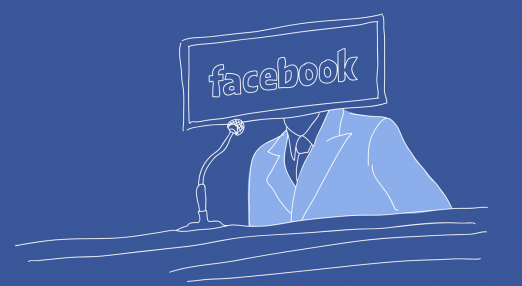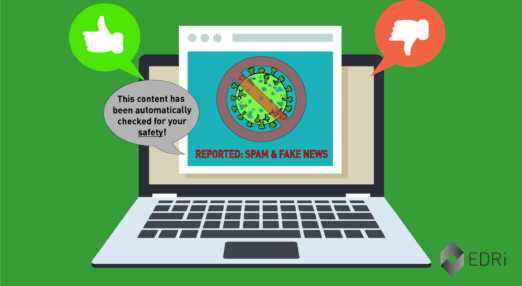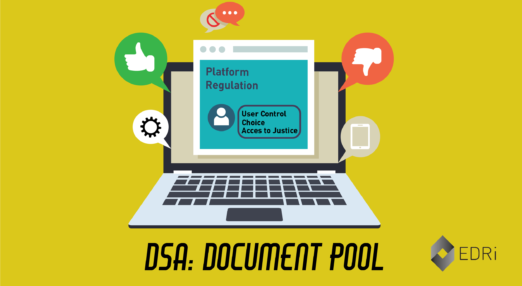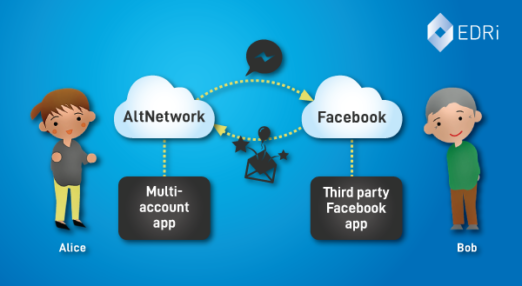content moderation
Filter by...
-

Elon Musk buying Twitter. What could possibly go wrong?
A new chapter of the surveillance capitalism saga happened just three days after the EU members adopted the final agreement on the Digital Services Act (DSA). The board of directors of Twitter accepted Elon Musk’s offer to buy the company for USD 44 billion. The deal is not closed yet, and now the ball is in Twitter’s shareholders to accept or reject the offer. This news has grabbed the media's attention worldwide and opened public discussions on how this would affect not only the features of Twitter but also freedom of speech in the digital sphere.
Read more
-

The Online Safety Bill: punishing victims
The government has today announced two new regressive and unworkable additions to the Online Safety Bill. With each new announcement, the Bill demonstrates itself to make the online world less safe for the people it claims to protect, particularly LGBTQ+, survivors of abuse and ethnic minorities.
Read more
-

What you need to know about the Facebook Papers
Facebook is now undergoing what may be the tech giant’s biggest crisis in its 17-year history. In October, The Washington Post reported that a second Facebook whistleblower came forward to the U.S. Securities and Exchange Commission, alleging that the company prioritises growth over combating hate speech, disinformation, and other threats to the public. The whistleblower’s testimony follows that of former Facebook employee Frances Haugen, whose legal counsel released what’s known as the Facebook Papers — a 10,000-page collection of internal reports, memos, and chat logs leaked to more than a dozen major news outlets.
Read more
-

A losing game: moderating online content fuels Big Tech power
While online platforms have a role to play in dealing with systemic risks, holistic - not techno-centric - approaches are needed to guarantee our safety and free expression, argues Claire Fernandez
Read more
-

First Analysis of the Austrian Anti-Hate Speech Law (NetDG/KoPlG)
On September 3rd the Austrian government released a legislative package to tackle online hate speech. Besides a comprehensive justice reform, the package also contains a bill that creates new obligations for online platforms to remove illegal user-generated content. This article offers a first analysis of the so called Kommunikationsplattformen-Gesetz (KoPl-G) and the many similarities it has to the German Netzwerkdurchsetzungsgesetz (NetzDG).
Read more
-

COVID-Tech: COVID infodemic and the lure of censorship
In EDRi's series on COVID-19, COVIDTech, we will explore the critical principles for protecting fundamental rights while curtailing the spread of the virus, as outlined in the EDRi network's statement on the virus.
Read more
-

Digital Services Act / Digital Markets Act: Document pool
The DSA-DMA package will affect how intermediaries regulate and influence user activity on their platforms, including people's ability to exercise their rights and freedoms online. It also aims at limiting the abuse of power by very large and gatekeeper platforms.
Read more
-

Who should decide what we see online?
Online platforms rank and moderate content without letting us know how and why they do it. There is a pressing need for transparency of the practices and policies of these online platforms.
Read more
-

Online content moderation: Where does the Commission stand?
The informal discussions (trilogues) between the European Parliament, the Council of the European Union and the European Commission are progressing on the Terrorist Content Regulation (TCO, aka “TERREG”). While users’ safeguards and rights-protective measures remain the Parliament’s red lines, the Commission presses the co-legislators to adopt what was a pre-elections public relations exercise, rather than […]
Read more
-

Shedding light on the Facebook content moderation centre in Athens
Following months of efforts, in early September 2019, EDRi observer Homo Digitalis managed to shed light on a case that concerns each and every Facebook user: a content moderation centre in Athens, Greece, tasked to moderate Facebook ads. As many other content moderation policies run by virtually unaccounatable private companies, this can pose threats to […]
Read more
-

Interoperability: A way to escape toxic online environments
The political debate on the future Digital Services Act mostly revolves around the question of online hate speech and how to best counter it. Whether based on state intervention or self-regulatory efforts, the solutions to address this legitimate public policy objective will be manifold. In its letter to France criticising the draft legislation on hateful […]
Read more
-

A privately managed public space?
Our “public spaces” online where we meet each other, organise, or speak about social issues, are often controlled and dominated by private companies (platforms like Facebook and YouTube). Pushing platforms to decide which opinions we are allowed to express and which not is not going to solve major problems in our society. The EU rules […]
Read more
